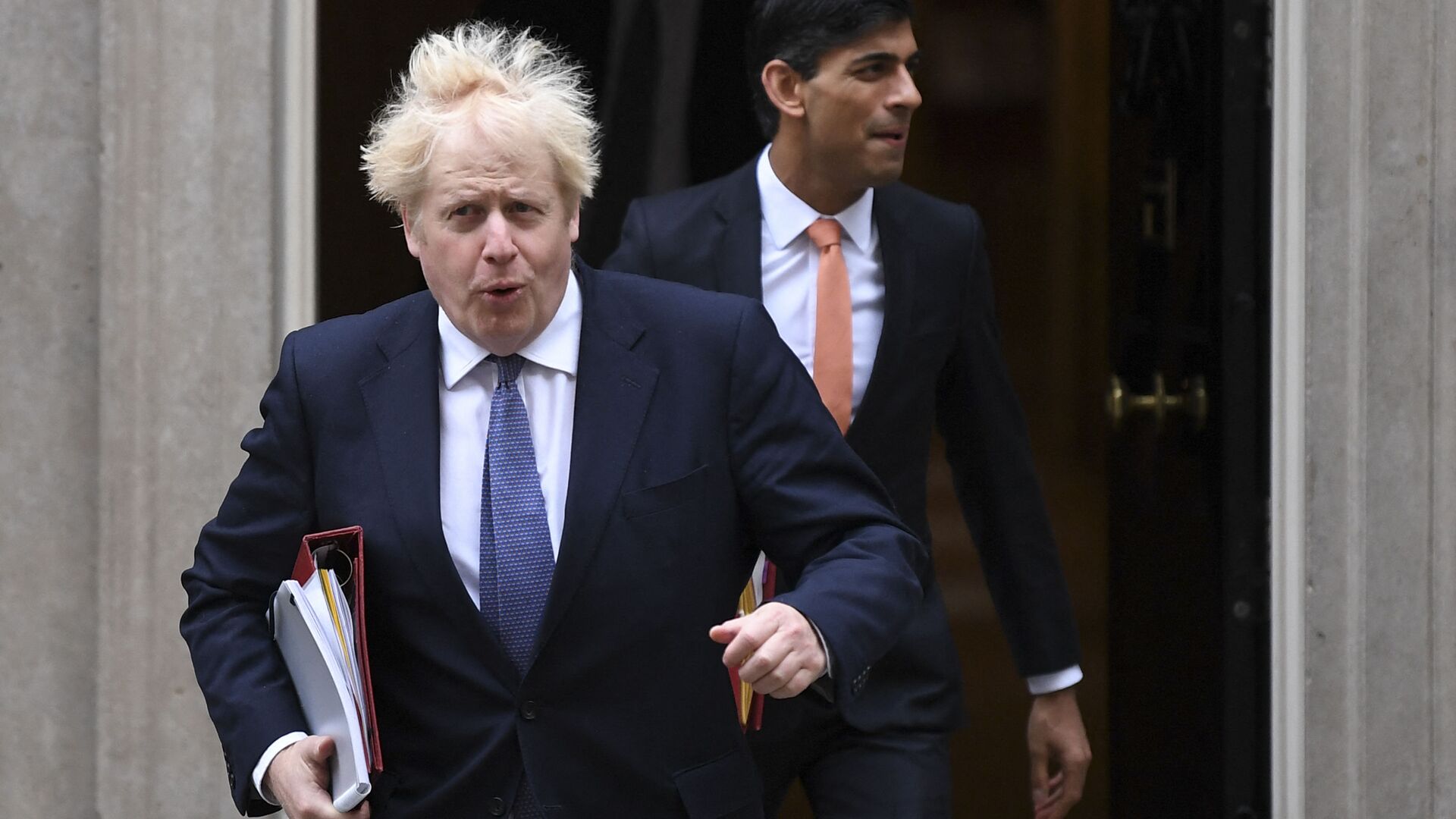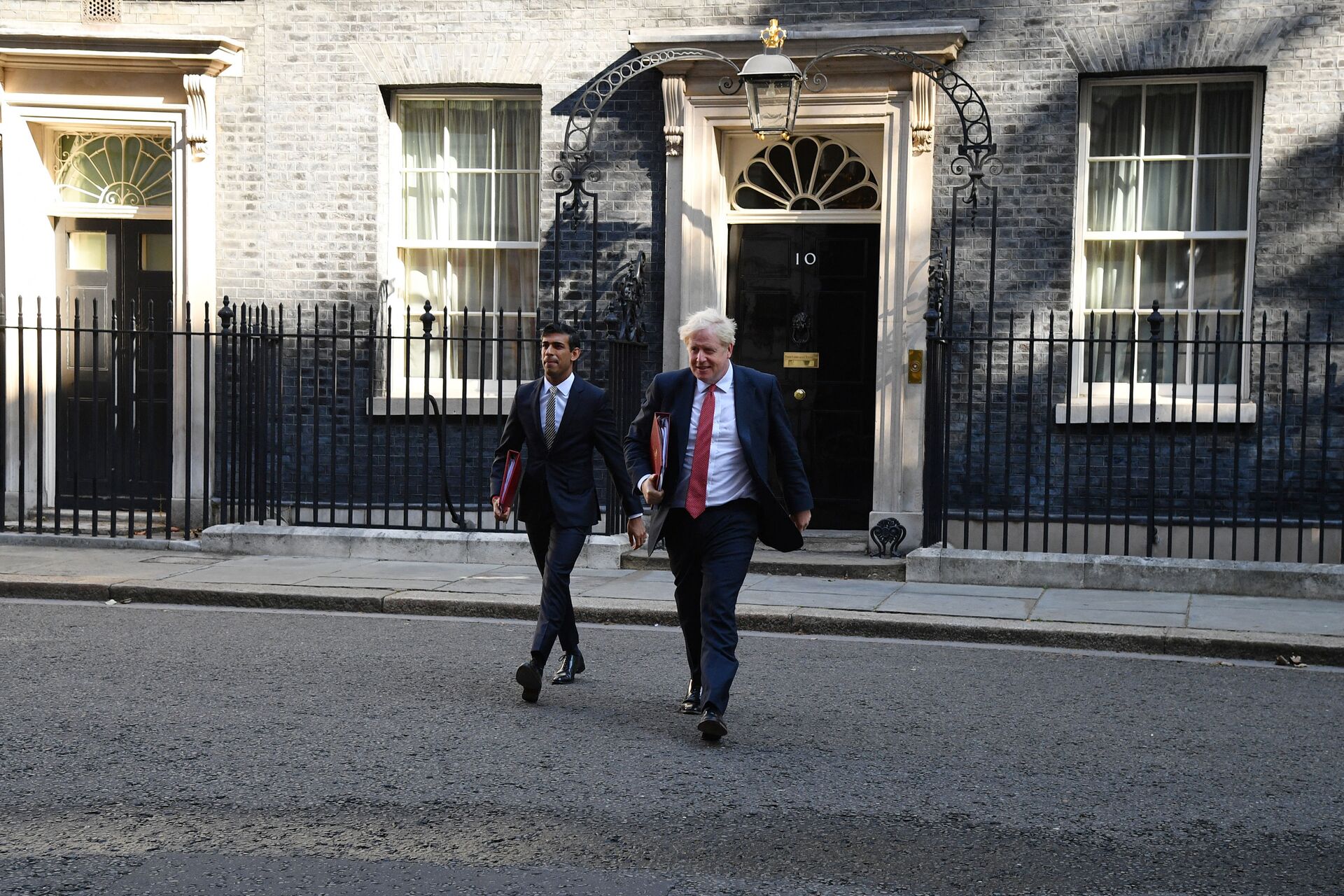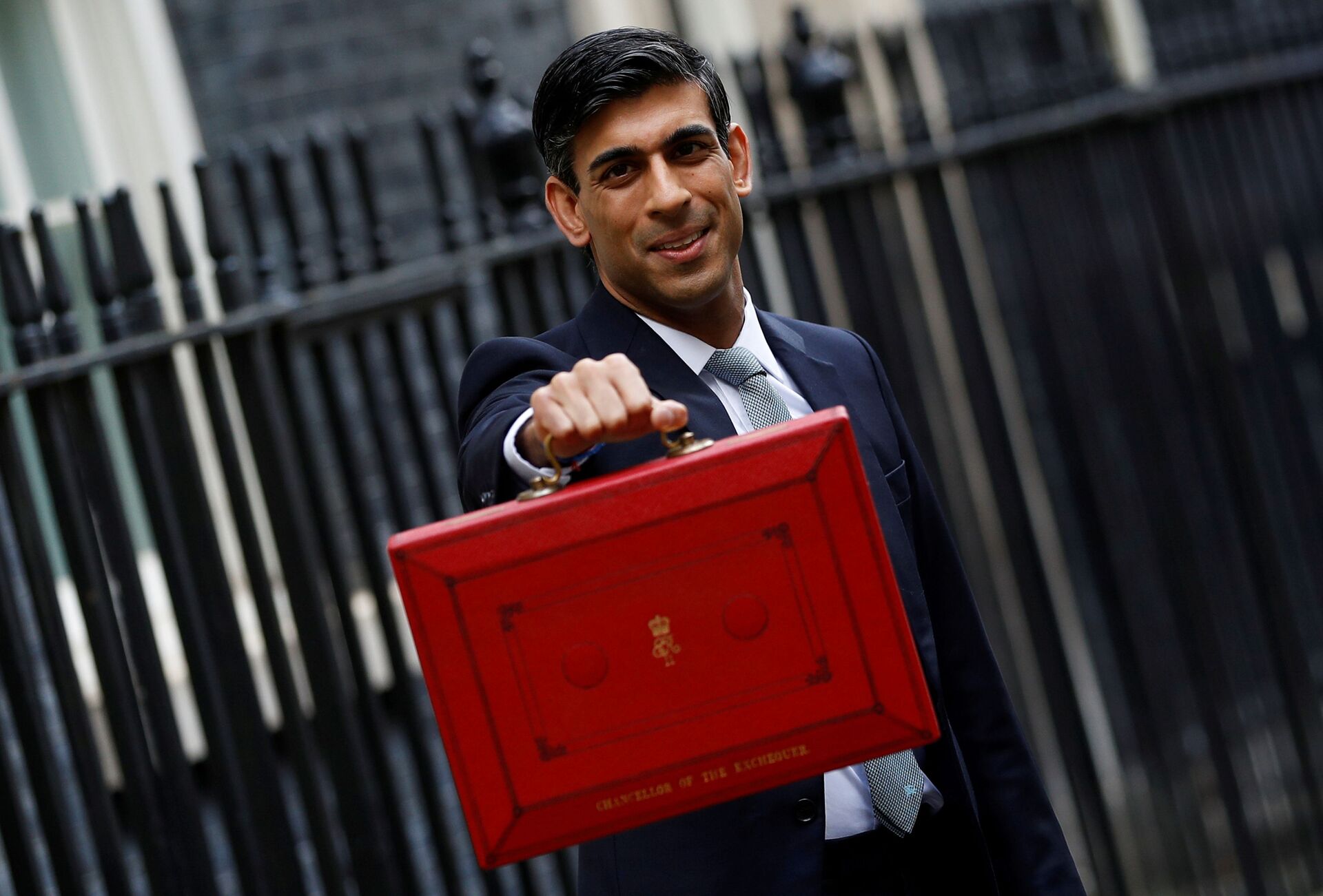Sunak's Letter & BoJo's Blowing a Gasket Show There's No Confidentiality Left in No 10, Scholars Say
04:26 GMT 11.08.2021 (Updated: 15:15 GMT 28.05.2023)

© AFP 2023 / DANIEL LEAL-OLIVAS
Subscribe
No 10 and No 11 have reportedly found themselves at odds following a new leaking scandal in the Boris Johnson administration. British academics Mark Garnett, Richard Toye, and Martin Farr have discussed whether leaks are a particular curse of the BoJo cabinet and whether the premier will come unscathed out of the latest battle.
UK Prime Minister Boris Johnson is reported to have recently threatened to demote Chancellor of the Exchequer Rishi Sunak after the chancellor's letter criticising the premier's travel restrictions and border policy was leaked to the Sunday Times last week ahead of Downing Street's official announcement of new travel rules.
To add to the controversy, it is understood that the prime minister learnt about Sunak's letter only from the press after officials forgot to flag it. When it rains it pours: Johnson's fretting and fuming about the chancellor's memo has also found its way to the media. "I've been thinking about it. Maybe it's time we looked at Rishi as the next secretary of state for health," the premier reportedly said. Johnson's apparent rant prompted criticism among some Conservatives, who warned the prime minister about demoting the popular chancellor, according to the Financial Times.
'A Double-Leak'
"Though not in itself as serious as an incident of March 2019, when the very sensitive details of a National Security Council discussion were revealed to the press (apparently by a cabinet minister), this latest leak is a sign that there is no longer any such thing as confidentiality within British government," says Mark Garnett, a politics professor at Lancaster University and author of the book "The British Prime Minister in an Age of Upheaval".
What's more, what happened was effectively a "double-leak," Garnett highlights, adding that it also came on the heels of the disclosure of text messages between Johnson and his former adviser, Dominic Cummings. Cummings has been on an exposure spree against BoJo since late May 2021, when he delivered a bombshell testimony about No 10's handling of COVID.
🚨 EXC: Boris Johnson threatened to demote Rishi Sunak from chancellor to health secretary last week (in front of a dozen witnesses)🚨 https://t.co/FnYrgIoch1
— Tim Shipman (@ShippersUnbound) August 7, 2021
"The new trend is ironic since Johnson is a journalist-turned-politician who understands the value of such revelations," the professor highlights. "Leaks can be helpful to a Prime Minister but when they become a habitual part of government activity they have obvious potential to undermine the unity of the Cabinet and to increase existing tensions between senior figures (in this case the prime minister and the chancellor)."

Britain's Prime Minister Boris Johnson (R) and Britain's Chancellor of the Exchequer Rishi Sunak (L) leave 10 Downing Street in central London on September 1, 2020 to walk through to the Foreign and Commonwealth Office to attend the first weekly meeting of the cabinet since the summer recess.
© AFP 2023 / JUSTIN TALLIS
'What Happened is not Unusual'
However, it would be wrong to presume that Johnson is the lone British PM whose private conversations are being consistently leaked to the public, according to British observers.
"Information about Cabinet meetings was leaked to the Daily Mail during the Attlee government (1945-51)," recalls Richard Toye, professor of modern history at the University of Exeter and author of the article "Prime Ministers and their Chancellors" in a Government blog. "It was also a big phenomenon under Harold Wilson (1964-70, 1974-76) - Wilson often leaked things himself and then complained about the leaks!"
Every prime minister has a similar situation when conversations are being briefed and letters are being revealed and that there's tension between chancellor and prime minister, echoes Dr Martin Farr, a senior lecturer of Contemporary British History at Newcastle University.
Some people expressing shock that someone would leak Johnson’s threat to demote Sunak. Actually interesting that it held for five days. Under Theresa May in 2018 it would have held 5 hours. Under May in 2019 it would have he,ld 5 minutes
— Tim Shipman (@ShippersUnbound) August 7, 2021
Still, the unique circumstances are that Rishi Sunak has emerged to prominence during his tenure as a chancellor and that presently the chancellor is in a particularly important position as the country is coming out of the pandemic, the academic explains.
In fact, tensions between the two flared up earlier than the ill-fated "double leak" according to Farr: the chancellor wants to cut spending or at least restrain spending and not to raise taxes, whereas Johnson is keener to continue spending.
"But at the end of the day, chancellors and prime ministers generally fall out over the extent of public spending the prime minister wants, and the extent that the chancellor is prepared to accept," the senior lecturer suggests.

FILE PHOTO: Britain's Chancellor of the Exchequer Rishi Sunak holds the budget box outside his office in Downing Street in London
© REUTERS / PETER NICHOLLS
For its part, The Guardian refers to at least six bones of contention between BoJo and Sunak, namely: the chancellor's "net zero" approach to costly climate change programmes; social care funding; the prime minister’s much-vaunted levelling up strategy to boost regional growth; austerity measures; COVID-19 restrictions; and, last but not least, personal popularity.
Sunak's growing popularity among Tories is cited as yet another factor triggering the ambitious prime minister's ire and discontent with the chancellor. The Conservative Home Cabinet League Table has recently indicated that BoJo's approval rates are plummeting.
"There seems to be a permanent eye among those at the top of who may be next in line for the job, suggests Professor Darren Lilleker, lecturer and researcher in political communication at Bournemouth University. "Sunak has emerged as a popular figure with the public and hence an alternative leader or leader-in-waiting. There are others, including [Secretary of State Dominic] Raab. Supporters of an opponent need them to remain in the highest office possible to combat threats through leaks (and) off the record briefings."
Still, there is nothing surprising about the Conservatives' attitude to the premier, according to Farr: "Johnson has less of a personal constituency in the party in parliament than other prime ministers have."
"He essentially won the leadership because he was thought to be electorally an asset and he was and won the election," the academic says. "But as things get more difficult, he'll find that there are not many Johnsonians around as they used to be Thatcherites or Blairites."
Farr believes that Johnson will manage to overcome the inconveniences created by the recent leak as he did many times before when he turned scandals into PR weapons. In these situations the premier's creativity plays directly into his hands, according to the academic.
"I think he essentially extemporises: his political philosophy is extemporised; his statecraft is extemporised," Farr presumes. "And so this actually, curiously, is an asset when it comes to attempts to undermine him. He's quite fleet of foot in most aspects, and while that's not always an advantage, it probably is in this matter in particular."

